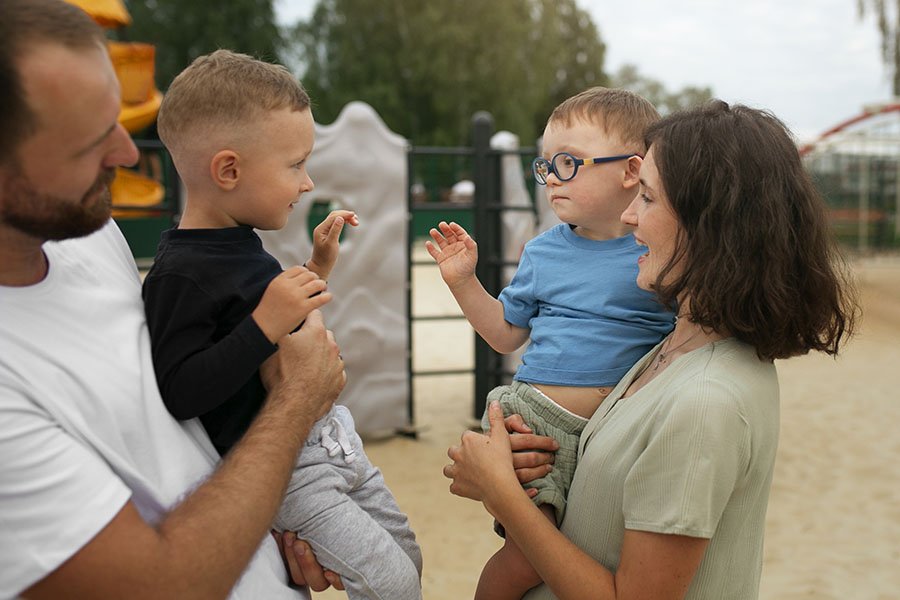The playground isn’t just a space for kids to run wild—it’s a shared environment where cooperation, safety, and respect matter. As parents and caregivers, we often focus on keeping our little ones entertained, but it’s just as important to be mindful of playground etiquette. Here are some of the essential, unspoken rules every family should follow to help make playtime fun and respectful for everyone.
Respect Age-Appropriate Areas
Most playgrounds are designed with age-specific sections—toddlers on one side, bigger kids on the other. These divisions exist for a reason: safety. Older children can unintentionally injure younger ones by running too fast or using equipment that’s too advanced. Encourage your child to play in the area meant for their age, and teach them to be aware of smaller children nearby.
Supervise Without Hovering
Playgrounds are perfect opportunities for kids to explore and develop independence. However, this doesn’t mean checking out entirely. Keep an eye on your child, step in when necessary, but try not to micromanage every move. Being present helps prevent conflicts, accidents, and allows you to guide your child through tricky social situations like taking turns or resolving disagreements.
Teach the Art of Sharing
One of the hardest (but most crucial) lessons kids learn on the playground is how to share. Swings, slides, and climbing structures are all communal. If your child is monopolizing something, gently remind them to give others a turn. And if another child wants to use something your child is playing with, help mediate a fair system—perhaps counting to ten or using a timer.
Clean Up After Yourself
Whether it’s snack wrappers, juice boxes, or sand toys, leaving things behind is not only inconsiderate but can also be unsafe. Trash can attract pests, and forgotten toys can be tripping hazards. Set a good example by cleaning up after your family and encouraging your child to do the same. It’s a simple act that contributes to a cleaner, more enjoyable space for everyone.
Be Mindful of Illness
Got the sniffles? Maybe skip the park. Illness spreads quickly among young children, especially in close quarters like playgrounds. If your child is coughing, sneezing, or running a fever, it’s best to rest at home until they’re better. The other parents (and their kids) will silently thank you.
Mind the Noise and Rough Play
Playgrounds are naturally noisy, but it’s important to teach kids the difference between joyful yelling and disruptive shouting. Also, games involving pushing, tackling, or wrestling can quickly get out of hand. Roughhousing may be fun for some, but it can make other children uncomfortable or lead to injuries. Encourage safe, inclusive play that keeps everyone involved and at ease.

Respect Boundaries and Personal Space
Not all children are comfortable with physical touch or shared toys. If another child says “no” or seems hesitant, it’s important to respect that. Likewise, avoid posting photos or videos of other children playing unless you have permission from their parents or guardians. What feels like a harmless snapshot to you could be a privacy concern for someone else.
Don’t Be a Bench Bully
Yes, parents need a break too. But don’t hog the only shaded bench or park your stroller in a busy walkway. Shared spaces apply to adults as well—make room for others and be aware of your surroundings. If you’re deep in conversation or on a phone call, be sure you’re still accessible in case your child needs you.
Model Respectful Behavior
Children mimic what they see. When parents are kind, patient, and respectful to others on the playground, kids pick up on that. Say hello to other parents, gently redirect your child when needed, and step in with empathy if a disagreement occurs. These small acts go a long way in fostering a positive community atmosphere.
Know When It’s Time to Go
Meltdowns happen. When your child is overtired, overwhelmed, or refusing to follow playground rules, it may be time to wrap it up. Leaving gracefully teaches your child that rules matter and shows consideration for others who are there to enjoy their time too. You can always try again another day.
Final Thoughts
Playgrounds offer more than just a space to burn energy—they’re opportunities to teach children lifelong social skills. By following basic playground etiquette, you help create a safe, friendly environment where kids can learn, grow, and most importantly, have fun. So next time you head to the park, bring a smile, a sense of community, and these unspoken rules in your back pocket.


